NSW Police Commissioner Karen Webb “nervous” over ACT drug decriminalisation
NSW Police Commissioner Karen Webb said she was “nervous” about how the ACT’s decision to decriminalise drugs could affect NSW.
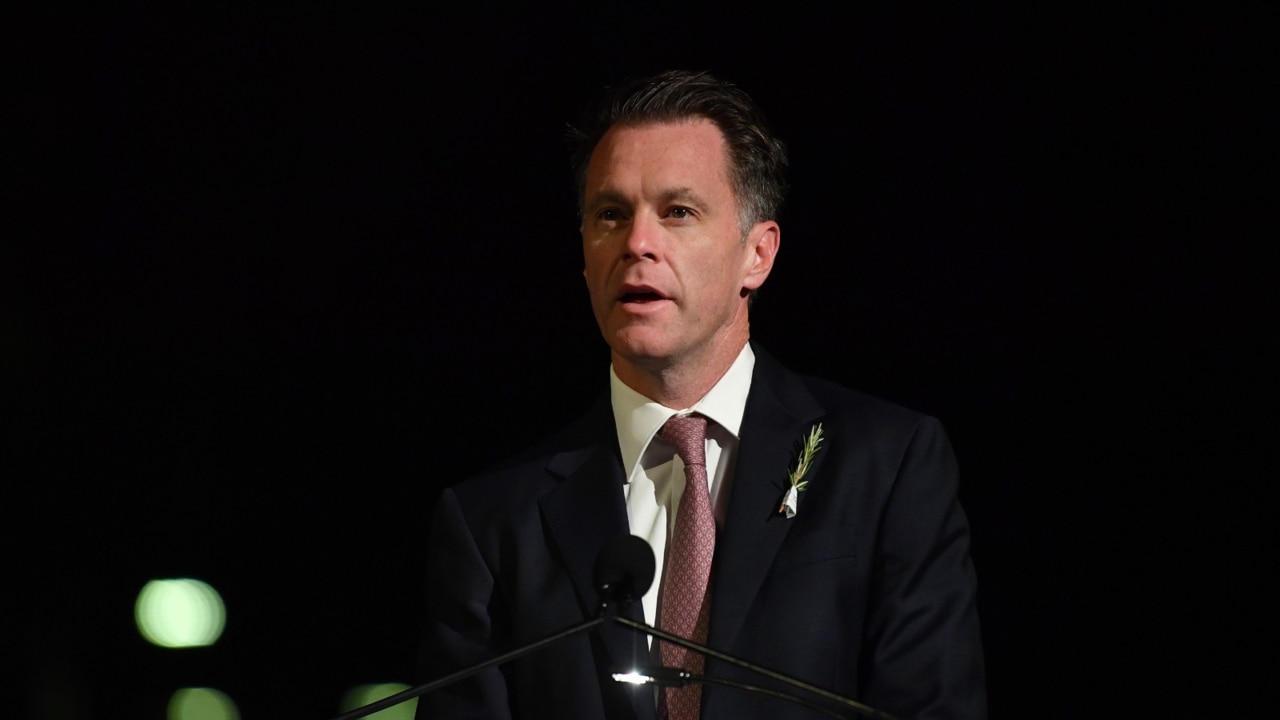
NSW’s top cop has aired her concerns of how the decriminalisation of drugs in the neighbouring ACT could affect the state.
On October 28, the territory government implemented a number of drug reforms which decreased maximum penalties for the possession of small quantities of cocaine, heroin, MDMA and ice.
People caught with the illicit drugs will be directed towards counselling programs, instead of facing a criminal charge.
However NSW Police Commissioner Karen Webb said while the policy is in its early days, there could be a flow-on effect in border towns such as Queanbeyan.
“There’s concern in the ACT that I think it was 70 per cent of fatal accidents … we’re drug related. Our statistics around drug related deaths is like 20 per cent – the highest contributor is speed,” she said.
“It’s really a watch-and-wait to see what happens in the ACT, and I guess we’re all a bit nervous in some respects, but we’ll just work with our counterparts them all the time.”
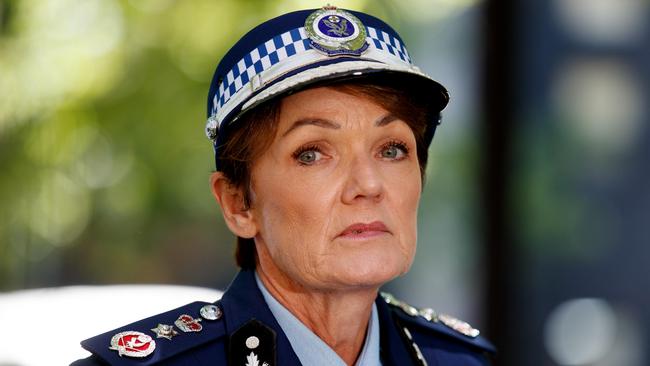
During Tuesday’s hearing, the Deputy Commissioner David Hudson also spoke about the link between high rates of drug crime in Sydney and its effect on youth crime.
He said 70 per cent of the drugs that come into NSW go through Sydney, which “creates its own network of criminality”.
The flow-on effect results in youth gangs which are recruited into larger, organised crime networks.
While Deputy Commissioner Hudson said police were trying the “break that cycle,” he said Sydney was a “highlight” for a “plethora of individuals who want to engage in organised crime”.
“We’ve seen the violence play on the streets through conflict through criminal groups, and that we’ve established a number of strike forces to actually interrupt that and disrupt that,” he said, listing programs like the Raptor Squad and the Group Squad.
Crucial protest call Minister can’t recall
NSW Police Minister Yasmin Catley was also asked several questions about the October 9 pro-Palestinian protests in which attendees marched from the Sydney Town Hall to the Opera House.
At the time the Opera House was lit up in blue and white as a tribute to the Jewish community following the Hamas terrorist attacks in Israel, however the vigil was co-opted by some attendees who chanted anti-Semitic slurs, lit flares and burned the Israeli flag.
Internal emails between police also revealed senior officers on the day before, held concerns over how the lighting of the Opera House sails could lead to the “potential further escalation of current tensions in the Jewish Israeli communities”.
During budget estimates on Tuesday, Ms Catley faced another round of battering from the Coalition over the actions she took during the day, as police received information about the escalating situation.
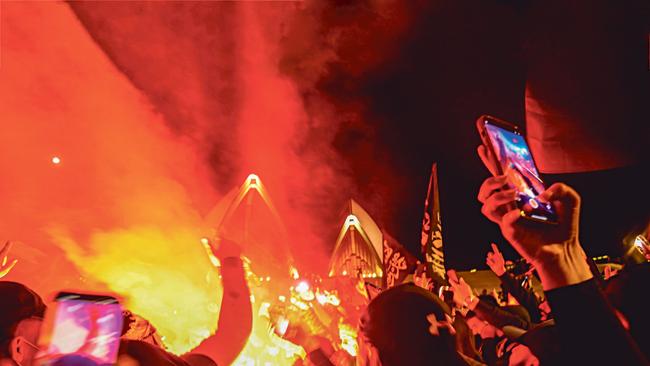
While NSW Premier Chris Minns has said he had one call with the minister during the day, Ms Catley couldn’t recall who initiated the phone call, what they spoke about, or at what point it occurred.
“I don’t recall the conversation, (it would have been) about the protest in general” she said.
She said she was getting regular updates from NSW Police, as they conducted their risk assessments, and would have relayed their advice in her phone call with Mr Minns.
“I wouldn’t have given him (the Premier) advice because I would … have relayed the advice that I received,” she said.
Nationals MP Sarah Mitchell questioned her recollection of the events.
“How can you not recall? With respect, would say that this is probably one of the main incidents in your time as Police Minister that has put the eyes of the world on Sydney and the Opera House?” she said.
“What kind of relationship is there? Does he trust you to do your job?”
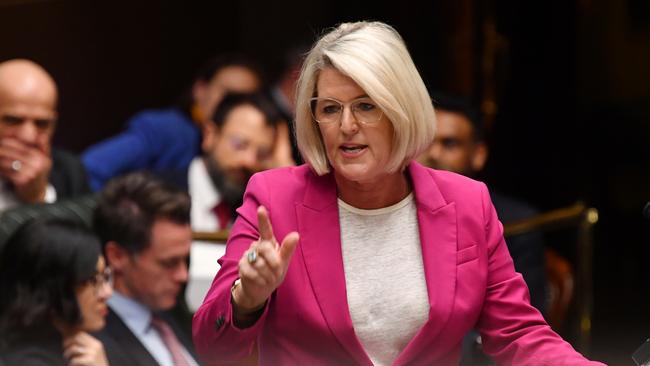
Ms Catley rejected Ms Mitchell’s line of questioning.
“I provided the information that was provided to me. I relayed that information,” she said.
“Both officers were in constant communication. I was in communication with the police … and the Premier’s office knew (that)”.
Ms Catley’s response to how the government handled the escalating protest also appeared to differ from the Premier’s.
Giving evidence to budget estimates in October, Mr Minns said he should have “in retrospect” not have allowed protesters to advance to the Opera House, and said he regretted the decision.
“We should have made the Opera House Forecourt in the immediate precinct an opportunity for the Jewish community to come together and if there were other protests in other parts of the city, then that should have been allowed to happen but well away from the community that wanted to come together and grieve.
“So I’m admitting that and the only thing I can do is, we apologise, and we want to learn from it.”
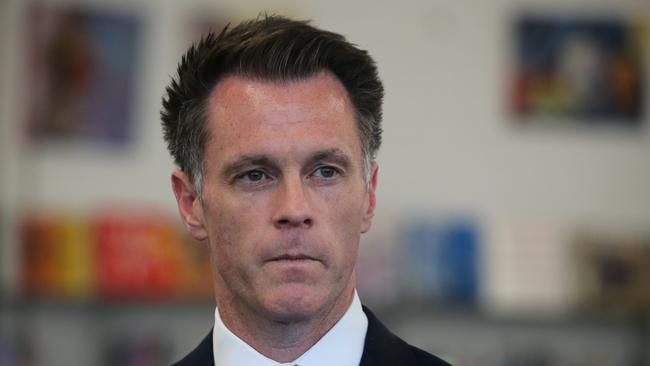
Instead Ms Catley said she regretted that the Jewish community wasn’t given a safe space to grieve, she didn’t go as far to say an operational mistake had been made.
She also
“What’s always missing here is the police have a set of circumstances before them,” she said.
“They have to deploy their operational management to address what is before (them).”
Ms Catley maintained she would have “accepted and worked with the police in the way that I did”.
“What would have been great is if we all had more time. That’s what would have been better. But again, that’s not policing, and that’s not what happened,” she said.
“What we thought was going to be one thing turned out to be another thing and the police just had to put their operational management of that in place as they were presented with different sets of circumstances.”
Cops stand by actions on Opera House protest
Senior NSW Police staff have also defended the actions they took to monitor and facilitate the October 9 protest.
In doing so, Deputy Commissioner Hudson, who was acting police commissioner at the time, said police could control the behaviour of the attendees and minimise disruption to the public.
One-hundred police were deployed to the protests, with another 100 in reserve at the Opera House
“Our concern was that they may take a route that bypassed the Great Synagogue on Castlereagh St, and we facilitated the march out of that envelope so that didn’t become an issue,” he said.
Mr Hudson added that social media reports rallying attendees to march from the Town Hall protest to the Opera House meant there was no way police “could have prevented the congregation at the Opera House”.
“It was about ensuring the safest way to achieve that,” he added.
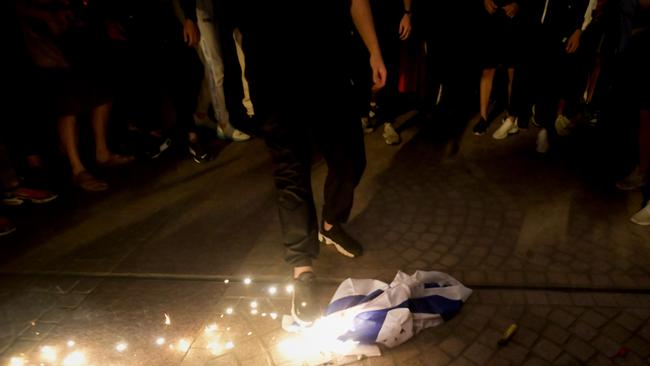
Cops, minister quizzed on police station closure
Several questions were also put to Ms Catley and Commissioner Webb over the temporary closure of Paddington Police Station.
A sign placed out the front of the station referred people to the next “closest station” in the neighbouring suburb of Potts Point.
Commissioner Webb said it was a “local decision” that was not endorsed by the executive. NSW Police also quickly issued a statement which confirmed the station would “remain operational 24 hours a day, seven days a week”.
“What I don’t yet have the answer to is a note that appeared on the door of the police station that wasn’t of the making of the Commander for eastern suburbs,” she said.
“So someone’s been cute, perhaps but we don’t know who.”
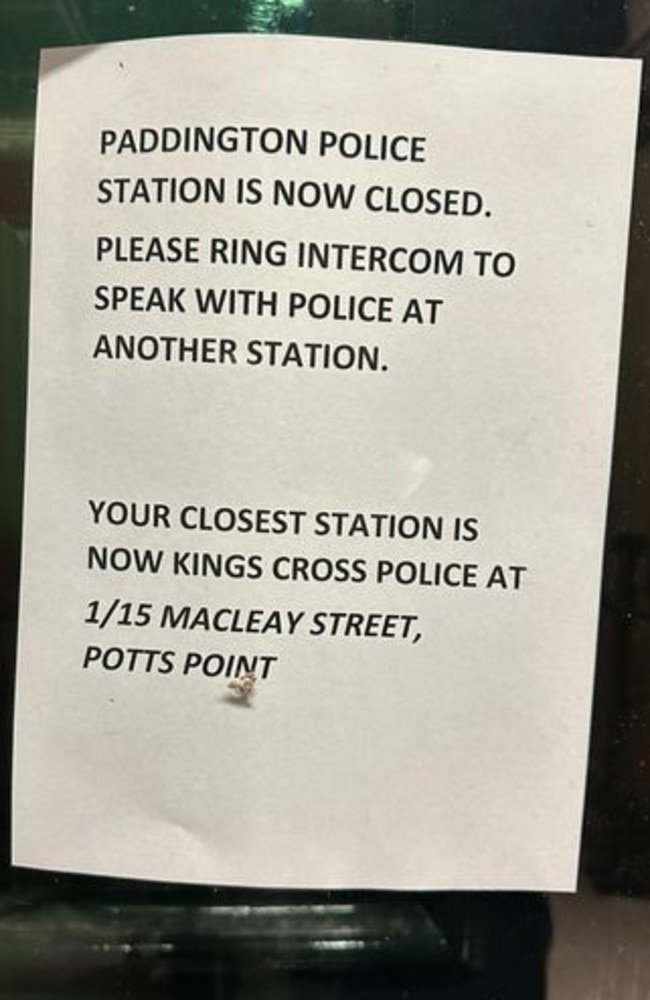
NSW Police Force Deputy Commissioner Malcolm Lanyon added the local Commander had initially made the decision to shutter the station to better manage police resources before it was overturned.
“Obviously in the current environment, one of the things we are doing is putting a lot of high visibility police in the eastern suburbs to deal with that conflict at the moment,” he said
“It closed because the Commander felt the use of those resources by making an additional car crew.”
‘Good signs’ cadet salary promise working
Commissioner Webb also said there were early indicators the government’s announcement to pay students at Goulburn Police Academy was attracting more people to the job.
Under the scheme, students will receive $30,984 over the 16-week course, which evens out to be $1360 a week, in addition to $380 a week in allowances.
Commissioner Webb said the academy had receive 40 applications over the weekend, compared to its normal rate of 10 applications every “few days”.
Police are also looking at how it can make policing a more appealing career option for Gen Z, with new recruits only staying in the field on average for three to four years.
“What I often say is we actually need to change the way we look at things rather than expecting the Gen Z to get to change their thinking,” she said.



To join the conversation, please log in. Don't have an account? Register
Join the conversation, you are commenting as Logout